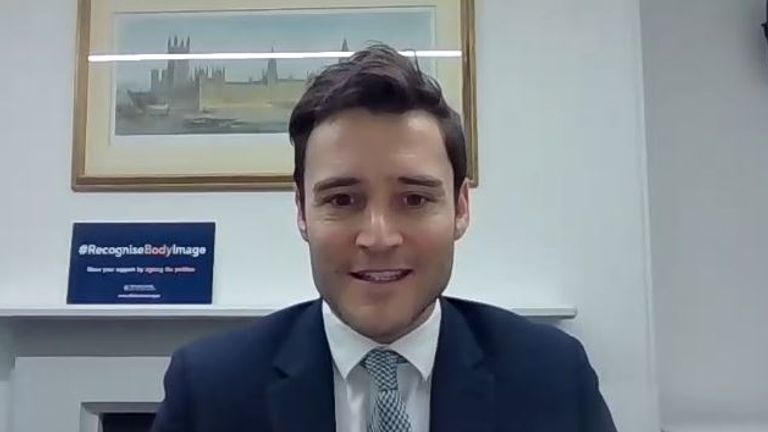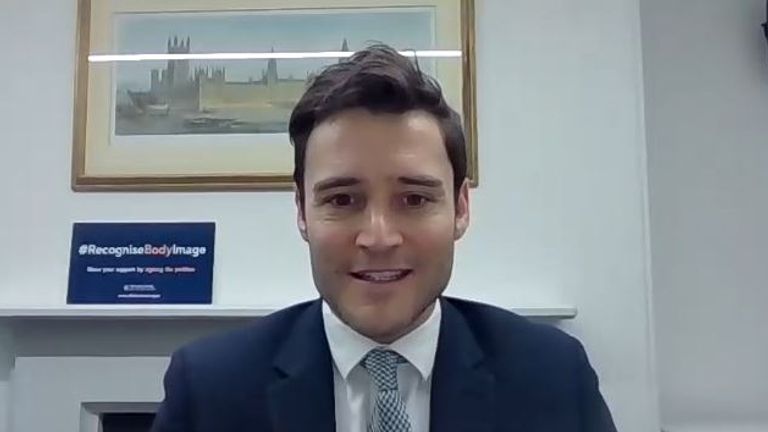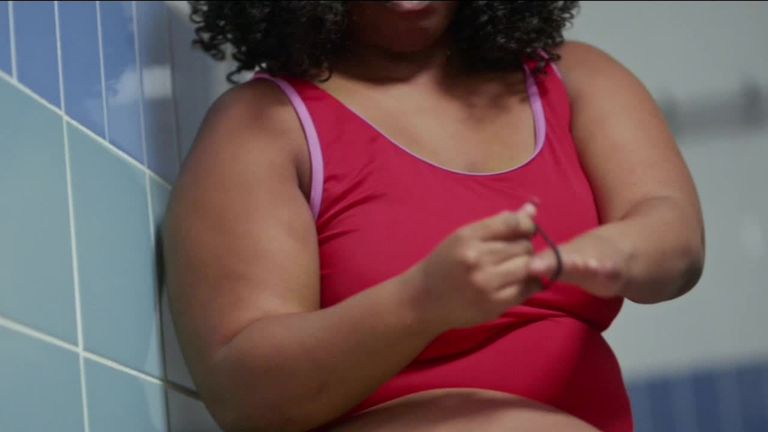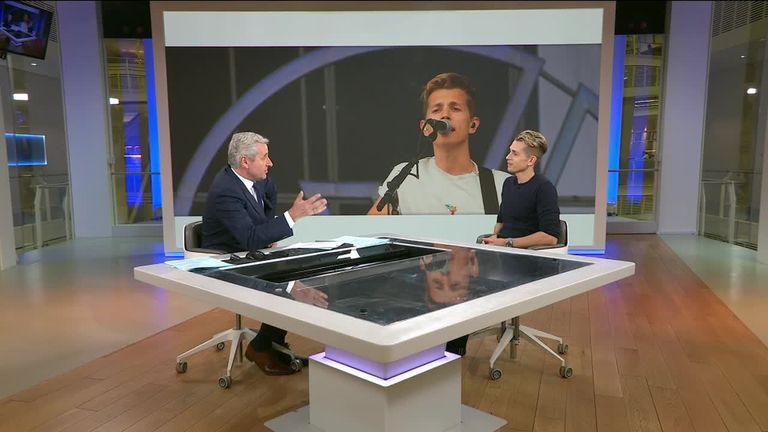
Social media influencers should be required to display a logo on digitally-altered photos of people, according to an MP who is calling for new legislation.
Advertisers, broadcasters and publishers, including anybody being paid to post on social media, would have to be “honest and upfront” about having edited a body or body part in a picture.
Former GP Dr Luke Evans, now a Conservative MP, is introducing the Digitally Altered Body Image Bill in the hope of helping to tackle the growing numbers of people struggling with eating disorders and body confidence issues.
People with eating disorders driven by ‘perfect’ bodies
Dr Evans told Sky News: “When I was a GP, particularly young women with eating disorders would talk about the fact they’re driven by these images and think they need to have a perfect physique.
“But you started seeing it from men, often talented sportsmen who wanted to get bigger, to look buff on the beach, so they’d start overtraining and taking unsolicited supplements but then they find themselves banned from sport because they’ve tested positive for steroids just because they thought they didn’t ‘look right’.
“One of the biggest things I’m concerned about is people are trying to respond to an image that they can never actually get to.
“Because, if you doctor your image, make your biceps bigger, your waist slimmer – and there are multiple images reproduced across social media – the problem is you’re creating a perception that no matter what you do, when you go to the gym, no matter how good your diet is, you are never going to be able to reproduce that.
“If you saw that person in real life the next day that body would be very different to the one they’re claiming to have – that’s my big concern.
“I’ve got no problem with people aspiring to be fit and healthy, but not in a warped sense that we can never achieve.”
Disclaimer logo ‘shows something needs to change’
Dr Evans said getting companies to add a small logo onto digitally altered photos of people “is a very small part” of a wider societal and cultural issue.
“But if it gets made law it will be a realisation that something needs to change in society because this issue is not going away,” he said.
“If anything, lockdown has proved it’s getting worse.”
Eating disorder charity welcomes bill
Tom Quinn, from the eating disorder charity Beat, said he welcomes Dr Evans raising awareness of “unrealistic body standards” after the charity’s support services experienced a 300% increase in demand over the pandemic.
He added: “Whilst social media would not be the sole cause of an eating disorder developing, from the people we support we know that pressures to look a certain way can lower self-esteem and confidence.
“Being exposed to unrealistic body shapes and sizes online can also serve as ‘inspiration’ to engage in eating disorder behaviours and become more unwell.”
‘Cross-party support’
Dr Evans said MPs from all parties have told him they are in support of his bill but it is not clear whether the proposals will receive government backing.
He added politicians from other countries such as Norway and the US have also got in contact saying they want to do the same.
If the bill is passed, the Advertising Standards Authority, the UK’s independent advertising regulator, would develop specific guidelines on how the disclaimer would look, where it would be placed, what qualifies as “edited” and what a “commercial purpose” is.
Dr Evans will present the Digitally Altered Body Image Bill to parliament on Wednesday afternoon as a 10-minute rule bill, which allows backbench MPs to put forward a bill. They often do not get through the first stage but it is a good chance to raise the profile of an issue and see how much support it could have.
If you’re worried about your own or someone else’s health, you can contact Beat, the UK’s eating disorder charity, 365 days a year on 0808 801 0677 or beateatingdisorders.org.uk








More Stories
5 Reasons Why Everyone Should Look Forward to Save Earth Mission’s Takeoff Event
Save Earth Mission’s Takeoff Event Countdown Starts: Get Ready to Witness History
The Save Earth Mission: A Global Movement Towards a Sustainable Future